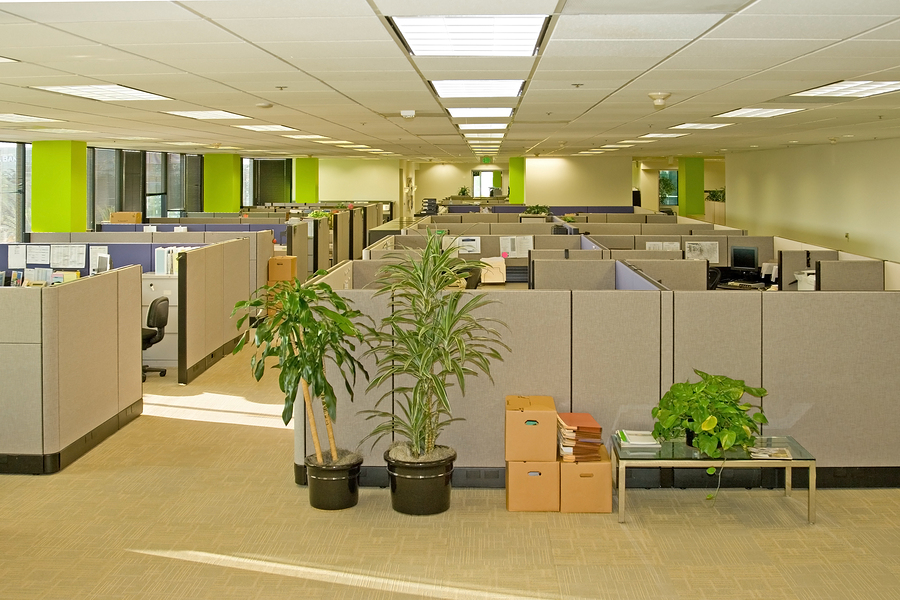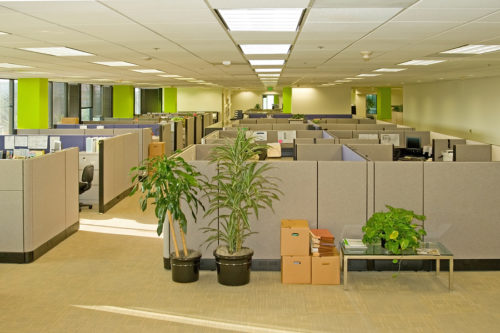
There are many decisions to be made when running a business – branding, staffing, marketing and operations are all important. But you need a place to operate and you want to choose the office arrangement that best fits your requirements. Will you lease a traditional office space? Or perhaps it’s a shared office or a flexible co-working space? How do you find an option that fits both now and into the future?
When is Co-Working Right?
Co-working spaces are commonplace today. These offices accommodate the rise of the freelance or contract worker, a niche which has seen remarkable growth in the last 15 years. But, now even small to medium companies are seeing the benefits and getting on board. Workers look for more flexibility and more freedom, so many now work remotely and come to an office only occasionally. A co-working space allows a place for teams to gather to meet or discuss projects. They provide all the modern conveniences along with technology such as projectors and video conferencing. In a startup, that may be all you need for several years until you build your base.
Lots of co-working agreements can be terminated within 30 days. This offers a great deal of flexibility if the time comes that you want something more permanent.
What are the Benefits of Subleasing Office Space?
If you would prefer a more traditional office environment, but don’t want the full commitment, then subleasing may be for you. Subleasing means that you rent the office space from a tenant who currently holds the lease instead of directly from the landlord. In this situation you are the subtenant. Subleasing is generally more affordable, as much as 15% to 40% less than typical office rates. Lease terms are also shorter allowing you to take advantage of the space now, but still keep your options open down the road.
You will likely have more choices in how much space you want to rent, as subleases for a few offices or a smaller space is more readily available. Another bonus is that often times you can move in immediately, without the time and expense that building improvements usually take.
When a Long-Term Office Lease Makes Sense
Once you have come to the decision that a dedicated office space is the right thing, then you need to think about the best choice for a long-term office lease. Location is likely one of the most important considerations. You want to be convenient for your employees and clients if they come to your space.
After location, then cost is probably the next concern. Do your homework and calculate how this will fit into your business plan and your projected growth. Make sure you clearly understand the lease details and what you are responsible for, don’t make assumptions or decide based on a conversation.
Find the balance between leasing a space that’s the right size for you now, but also has some room to grow. You don’t want to be locked into an office that you have outgrown halfway through the lease term.
We Can Get Your Office IT Running
Whichever type of office arrangement you choose, Great Lakes Computer can help create the ideal network setup. Moving your IT is one of the most critical tasks. You need to minimize downtime to prevent any impact on your business or customer experience. With our office relocation services we backup your data, pack up your equipment, move it to the new location, unpack it and get you up and running quickly. We will be on-site to troubleshoot any hiccups that arise at the new location as well.


 If you run a business, you probably use some variation of IT hardware to do it. To keep that equipment running smoothly, you’ll run across the need for maintenance, which can come in a couple forms. Managed IT Service contracts are proactive and include ongoing maintenance, monitoring and support, while the break fix model is reactive and based on the immediate needs of your business. There are advantages to both service options. Below are important details about each type of service to help you decide what’s right for you.
If you run a business, you probably use some variation of IT hardware to do it. To keep that equipment running smoothly, you’ll run across the need for maintenance, which can come in a couple forms. Managed IT Service contracts are proactive and include ongoing maintenance, monitoring and support, while the break fix model is reactive and based on the immediate needs of your business. There are advantages to both service options. Below are important details about each type of service to help you decide what’s right for you. We have it easy. We carry supercomputers in our pockets and data processing powerhouses in our shoulder bags. We are no longer tethered to a desk, or an internet cable, or even a power cord. Our freedom has made us more productive, but too often we neglect the basic maintenance these high-powered machines need to continue operating. We rely on our laptops to be there for us wherever we need them, but can they rely on us to care for them?
We have it easy. We carry supercomputers in our pockets and data processing powerhouses in our shoulder bags. We are no longer tethered to a desk, or an internet cable, or even a power cord. Our freedom has made us more productive, but too often we neglect the basic maintenance these high-powered machines need to continue operating. We rely on our laptops to be there for us wherever we need them, but can they rely on us to care for them?

